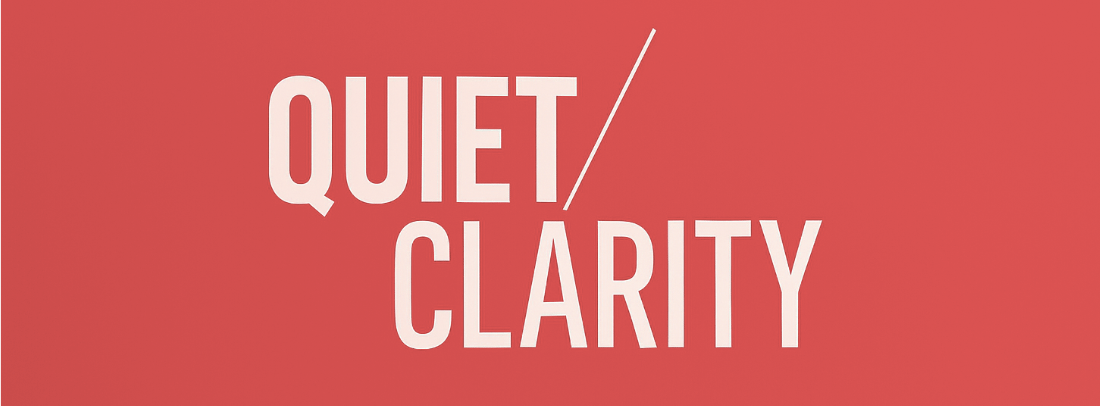
Quiet Clarity is a 2x/week newsletter and podcast for people who want to build a life of presence, depth, and deliberate intention.
How often are you actually aware of what you're thinking, feeling, or doing?
Most of the time, we're on autopilot, unconsciously moving through our days.
Yet the most successful people are intentional about their energy and time.
If someone gave you $1,440 every day but you didn't know which day would be your last, would you hand it out carelessly?
You do get $1,440 every day. Just not in dollars. You get it in minutes.
And once they're gone, they're gone for good.
What if you're spending your most valuable currency without even realizing it?
Where It Showed Up in My Life
For years in high school, I wanted to be an FBLA officer.
Everyone around me was going for officer positions, so it felt like the thing to do.
Every day I wrote about it in my journal: FBLA, FBLA, FBLA.
But one day, as I was writing, something shifted: "Wait... why am I even doing this?"
I still applied and got rejected.
But that rejection forced me to face what I'd been avoiding: I was chasing someone else's definition of success.
As I kept journaling, the truth slowly emerged.
What I thought I wanted: prestige, tons of money, a shredded body, to be admired.
What I actually wanted: love around me, inner peace, freedom, health, deep purpose.
What the Wisdom Reveals
Carl Jung understood something profound about human nature when he said: "Until you make the unconscious conscious, it will direct your life and you will call it fate."
Jung spent his entire career studying the unconscious mind, that vast ocean of thoughts, feelings, and motivations operating below our awareness.
He discovered that most people live their entire lives directed by forces they never examine.
We inherit dreams from our parents, adopt goals from our peers, chase achievements that society applauds.
Then we wonder why success feels so empty.
Jung believed the path to authentic life required what he called "individuation": bringing the unconscious into consciousness.
He practiced this himself through what he called "active imagination," spending hours writing down his thoughts, dreams, and inner dialogues.
Not to create pretty prose, but to catch himself in the act of being himself.
Jung found that when people finally faced their unconscious patterns, something profound happened.
They stopped living out inherited scripts and started authoring their own lives.
The banker who realized he became a banker because his father was disappointed in his artist brother.
The woman who discovered her perfectionism was just fear of her mother's criticism.
Each person believing they were choosing freely, until they saw the invisible hands directing their choices.
Jung said the goal wasn't to eliminate the unconscious but to befriend it, to know what drives you so you can finally take the wheel.
How I'm Trying to Live Now
Am I directing my life or is my unconscious directing it for me?
After years of journaling, I've learned it's not about writing what your dog did today.
It's about facing yourself, the same way you'd finally open your bank app when you're broke.
Uncomfortable? Yes. Necessary? Absolutely.
Journaling forces the unconscious conscious by making you witness your own patterns.
Now when I write, I ask myself harder questions:
Why am I really pursuing this goal?
Whose voice is directing this choice?
What am I avoiding by staying busy?
The funny thing is, none of the things I truly want can be measured by metrics.
They don't come from chasing what looks good; they come from choosing what feels true.
Here's what I've learned about those 1,440 minutes:
Start treating them like the finite resource they are.
Notice where you're spending them unconsciously.
Ask yourself whose dreams you're funding with your time.
You don't have to live every day like it's your last, but remember that chart showing life in weeks.
Even if you live to 90, it's only 4,690 little dots.
The goal isn't to get everything you ever wanted; it's to stop wanting things that were never yours to begin with.
How much did you enjoy this read?

